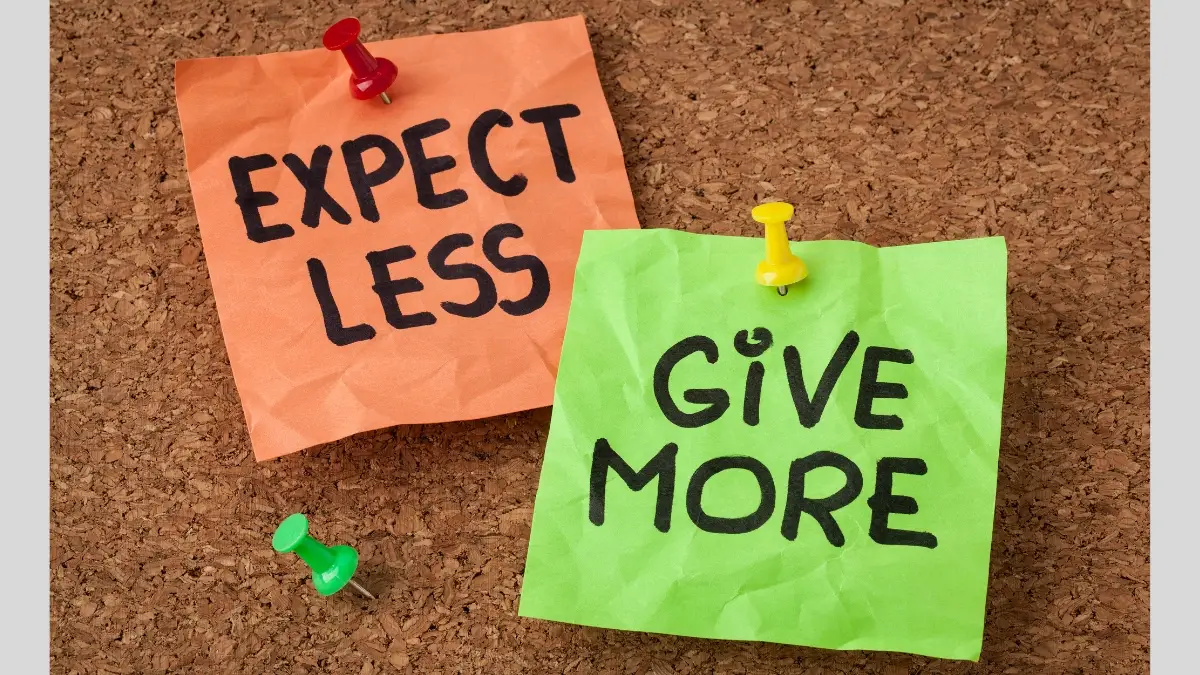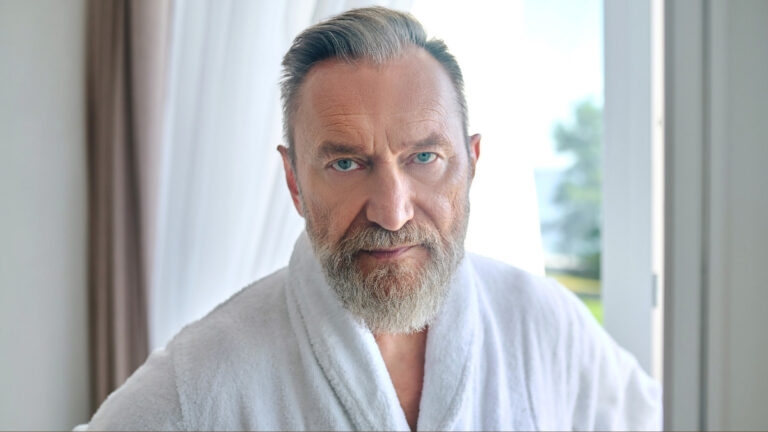Why Your Grandparents Are Happier Than You: The Dark Truth About Aging & Joy

Ever noticed how your grandparents seem content with simple pleasures while you scroll through social media feeling empty? Science confirms this isn’t coincidence.
Studies show adults over 65 report significantly higher life satisfaction than those under 30—despite facing health challenges and limited mobility. This happiness gap exists across cultures and income levels, suggesting something profound about aging itself.
The cause? Your brain wants what you don’t have. Your grandparents are happy. You scroll your phone and feel empty. This is not by chance.
Studies show something clear. People over 65 are happier than people under 30. This is true even though older people face health problems. It is true across all countries and income levels.

The reason is simple. Your brain wants what it does not have. Your grandparents enjoy what they have. They learned how to control their emotions over many years. They built real connections, not huge networks. They stopped comparing themselves to others.
They know their time is limited. This makes them focus on what matters. You can learn their secrets now. You do not need to wait fifty years.
1. They Don’t Compare Themselves to Others
Older people do not use Instagram or TikTok. They do not see perfect lives all day. This gives them peace of mind. Young people scroll through endless streams of filtered perfection.
They see vacation photos, perfect bodies, successful careers. Every scroll makes them feel less than enough. Older people miss this completely. They are blissfully disconnected from these platforms that feed anxiety. Research from the University of Pennsylvania shows this matters deeply.

When people use less social media, they feel less lonely. They feel less sad. They stop measuring their real life against everyone else’s highlight reel. This is why older people are happier even when they have less money or worse health than young people. They live in their own reality, not a comparison trap.
What You Can Do:
- Stop using social media for 24 hours each week
- Write down what you are grateful for each day
- Follow accounts that help you, not accounts that make you feel bad
2. They Expect Less and Get More
Old age teaches a hard lesson. Happiness grows when you expect less. Grandparents know that nothing is perfect. They learned this through disappointment. Through failed dreams and broken plans. Through life not turning out the way they imagined.

Now they enjoy small things. A bird singing outside the window. A warm cup of tea in the morning. A phone call from a friend they have known for decades. These moments fill them with real joy.
Young people chase markers of success that always stay out of reach. The perfect job. The perfect relationship. The perfect life. Old people stopped chasing. They found that life’s best moments were quiet and simple all along. This shift from chasing to savoring changes everything.
What You Can Do:
- Set three “good enough” goals instead of perfect ones
- Make a list of simple pleasures and do one each day
- Find one thing each day that is flawed but still good
3. They Control Their Emotions Better
Older people have handled emotions for decades. This gives them skills young people do not have yet. They have lived through losses, disappointments, celebrations, and surprises. Each experience taught them something.

Science shows that the brain changes with age in helpful ways. The amygdala is the part that causes fear and anger. It gets quieter as we age. But the part that feels joy and contentment stays active. This biological shift helps older people stay calm. They do not panic at small problems.
They do not rage at minor frustrations. Older people recover from bad news faster than young people. They stay happy longer when good things happen. They have learned which battles matter and which do not. Time taught them this wisdom that no book can give you.
What You Can Do:
- Remember that strong emotions last 90 seconds if you do not feed them with more thoughts
- Name your emotions clearly (say “disappointed” not just “bad”)
- Create actions you do when you feel too much emotion
4. They Have Real Friends
Quality beats quantity. Always. Young people count followers and party invitations. They measure friendship by numbers on a screen. Old people have a small group of real friends. Maybe three. Maybe five. Each one matters deeply.

They dropped the people who drained their energy years ago. The fake friends. The takers. The ones who only called when they needed something. They kept the people who truly care. The ones who show up when life gets hard.
Harvard studied happiness for over 80 years. The study followed people from youth to old age. The finding is clear and simple. Close relationships make you happier than money, fame, or success. Not many relationships. Deep ones. This is what older people figured out.
What You Can Do:
- List your top five relationships and why they matter
- Share something personal with one friend each week
- Talk in person or on the phone instead of texting
5. They Know Death Is Real
Older people think about death more. This does not scare them. It frees them. When you know time is limited, you stop caring about small problems. The argument at work. The slight from a neighbor. The imperfect dinner party.

None of it matters when you face your own end. You focus on what truly matters instead. Time with loved ones. Making peace with old enemies. Doing work that means something. Psychologists call this “socioemotional selectivity theory.” It means that when your time horizon shrinks, your priorities become crystal clear.
It is why older people feel more joy and less worry than young people, even with more health problems. Stanford University confirmed this through research. Knowing death is coming makes life more precious, not less.
What You Can Do:
- Ask yourself: What would I do if I had five years left?
- Make a list of things not worth your time
- Do things that matter for how you want to be remembered
6. They Make Fewer Decisions
Young people make constant decisions every single day. What career to pursue. Whether to stay in a relationship or leave. Where to live. What apartment to rent. What car to buy. Which job offer to take. What to eat for every meal. What to wear each morning.

This wears you down. Each choice takes mental energy. Old people already made the big choices years ago. Their career is done. Their home is established. Their life partner is chosen. This gives them mental freedom and peace. Science shows that making decisions uses real brain energy.
It consumes glucose and depletes your mental resources. When you make fewer decisions, you have more clarity. More contentment. Less exhaustion at the end of each day. Old people live with this freedom that young people rarely experience.
What You Can Do:
- Create rules for decisions you make often (what to eat, what to wear)
- Set deadlines for decisions so you stop overthinking
- Choose the first option that works well enough instead of the perfect option
7. Bad Health Makes Them Appreciate Life
This sounds wrong. But it is true. Research shows that many older people with serious health problems are happier than young, healthy people. Scientists call this the “disability paradox.” It seems impossible but the data is clear. When your body gets weaker, your brain adjusts.

Your expectations change. You stop expecting perfect health and perfect function. Instead you feel grateful for what you can still do. Walk to the mailbox. Hold a grandchild. Taste good food. These become victories, not ordinary events. Health problems also bring more support from others.
Family checks in more. Friends visit. Neighbors help. This fills the deep human need for connection and care. It reminds you that you matter to people. That you are not alone. Young healthy people often feel isolated despite their strong bodies.
What You Can Do:
- Name one ability you still have each day
- Change activities to fit your abilities instead of giving them up
- Write down hard times you survived to remind yourself you are strong
Simple Ways to Start Today
Daily Practices:
- Spend five minutes fully present during one routine activity
- Write down wisdom from older people you know
- Turn off screens at a set time each night
- Focus on helping others instead of achieving more
- Look at old photos or listen to old music
- Stop to notice small good things
- Step away from fights that do not matter
The Final Truth
Getting old wrinkles your skin. But it smooths your soul.
We chase happiness like it is something to catch. Our grandparents learned the truth. Joy comes when you stop chasing it so hard.
We build perfect online lives. We collect experiences like prizes. Our grandparents discovered something simpler. Real joy needs less, not more.
Their wisdom is not about the past. It is about what they learned through pain and time. The hardest truth about aging is not that bodies fail. It is how long it takes to learn what truly matters.
Your grandparents are happy because they finally know. You can know it now.






